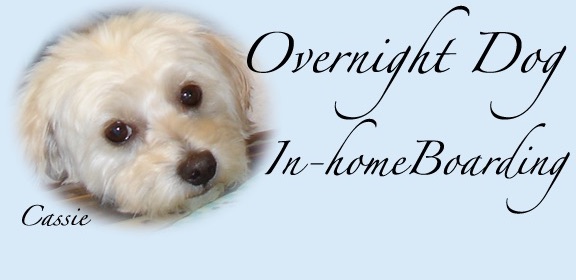

We are not professional dog trainers, but having many years of experience training dogs, we feel qualified to say a few things:
RECALLProbably the most important command to teach your dog (besides NO) is to COME or COME HERE when you call him. Next important to that is the LEAVE IT command. If your dog gets free and runs into traffic, good recall might save his/her life! If your dog starts eating something potentially dangerous while on a walk, LEAVE IT might save him from eating something poisonous.Teaching RECALL: Call your dog when you feed him, even if he's standing next to you. Call him from another room when he's napping. Then give him a treat when he comes. It won't take long, because it's conditioning. Coming to you when you call is good because he's rewarded. Same thing with LEAVE IT. Hold a treat in your hand, fingers closed. Put your hand in front of him and say LEAVE IT. Then tell him to sit. After he sits, hold your hand out, then open your fingers to give him the treat, saying OK, TAKE IT, good dog! Do this at lease several times a day until he understands LEAVE IT. The final test, of course, is to offer the treat with your hand open, then say LEAVE IT. He should then sit and wait for you to say OK, TAKE IT. PROBLEM AT THE DOG PARK: If your dog won't come to you, walk slowly toward your dog, telling her to sit (you know the hand signal for that -- palm up starting below her chin, then up above her head -- fast motion). Also, don't ask her to sit. Tell her to do it. "Fido SIT!" Get some freeze-dried liver treats or cheesy treats. Something she absolutely loves. While you're in the park, call her several times when she's likely to come, have her sit, put your hand on her collar while giving her a treat, say "good girl," give her a pat, then "OK, go play!" Some people make the mistake of calling their dog only when ready to leave. The dog doesn't want to leave, so doesn't come. Makes sense, huh. It's all conditioning. Repeating patterns from which she gets rewards (praise or treats). Another one I've heard is to turn your back, sit down, hunch over, and even whimper some. She'll be either concerned or curious and come see what's up. Or not. I think dogs are like children. You don't give them commands you don't expect them to want to do, or be able to do. So when you do give a command, they know you mean it. If you are not the alpha dog in your house, your dog will be! More to come - I'm asking other dog trainers to contribute to this. --Nancy
|